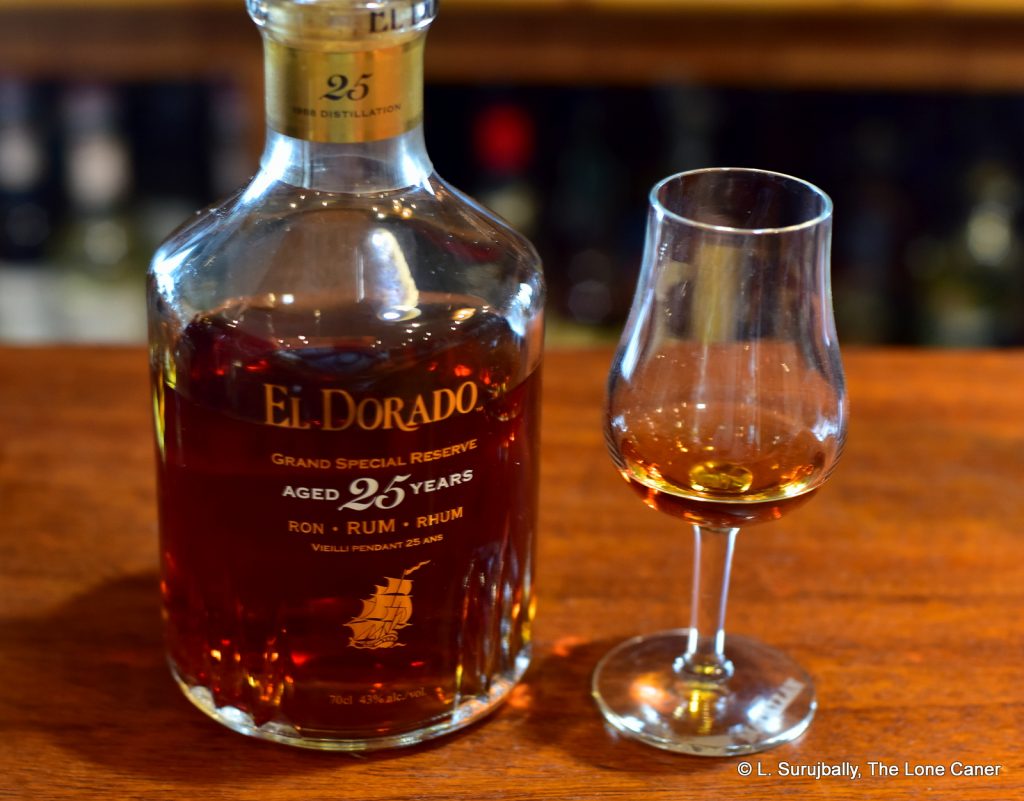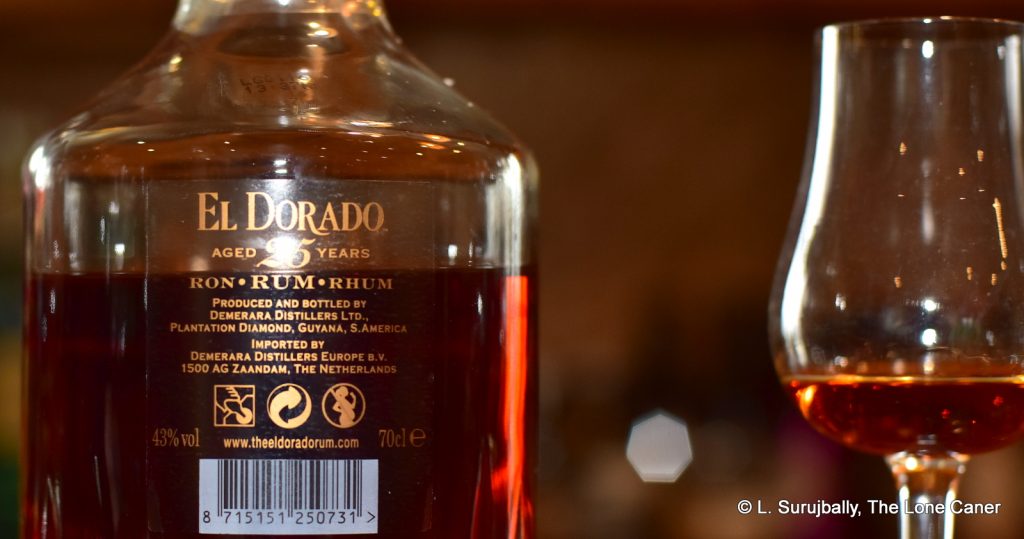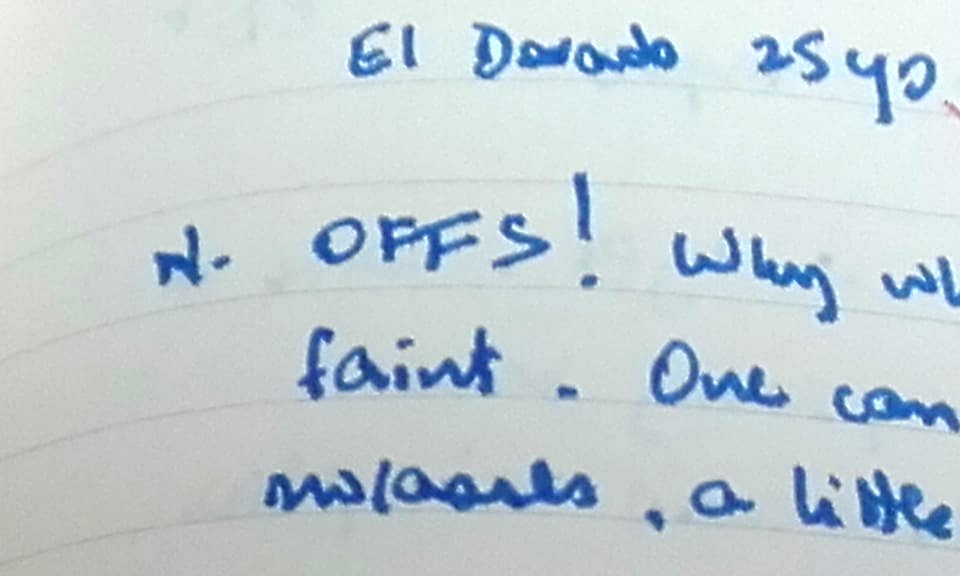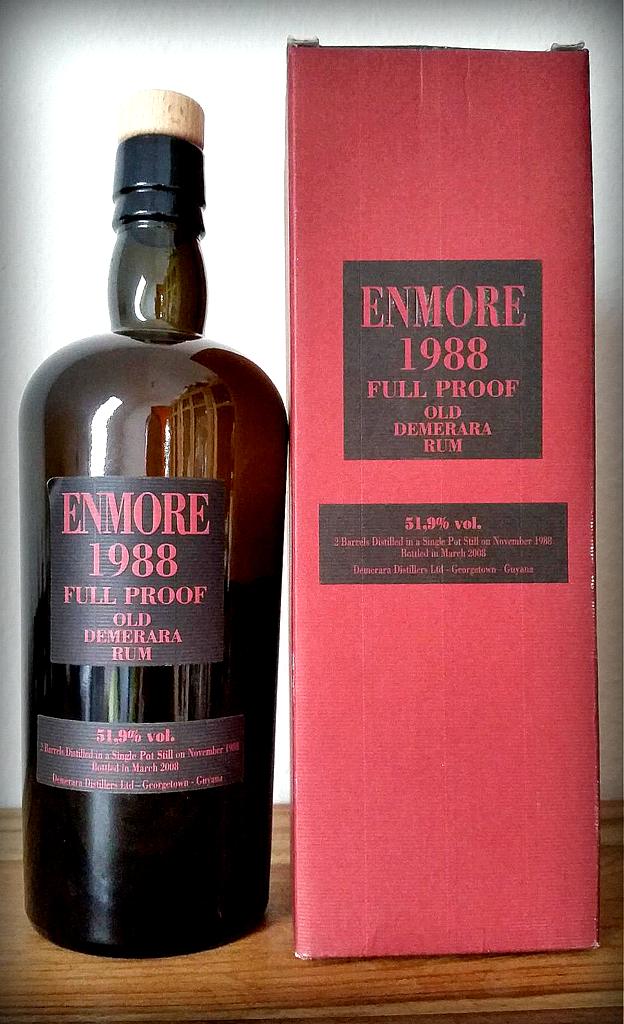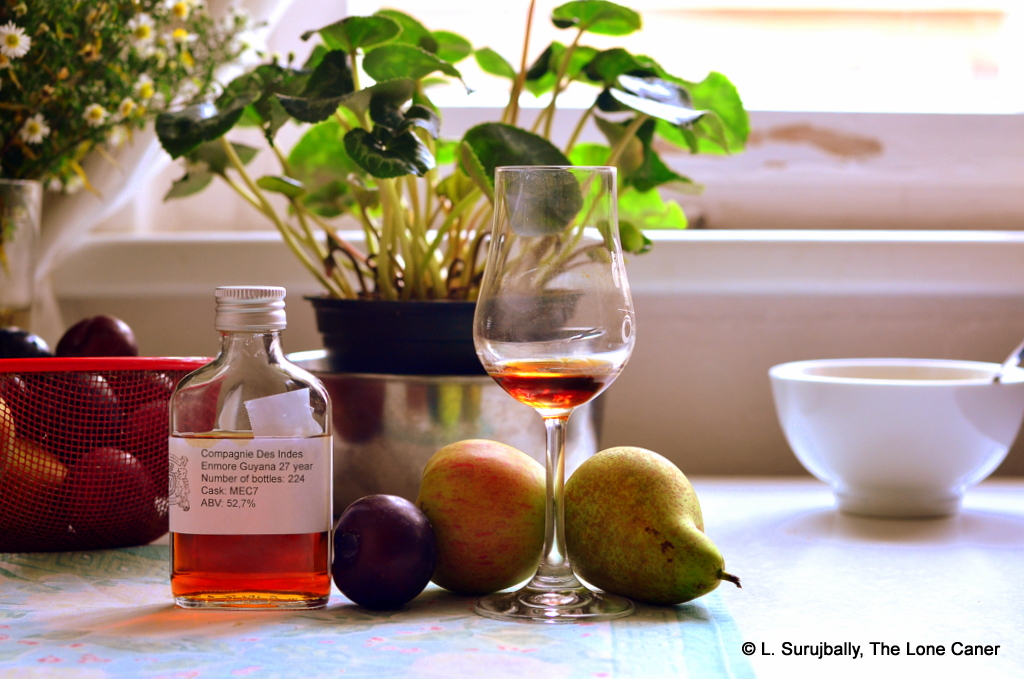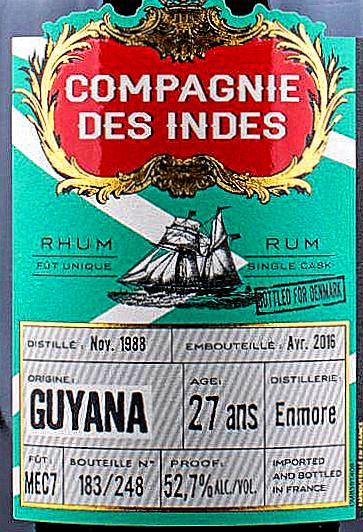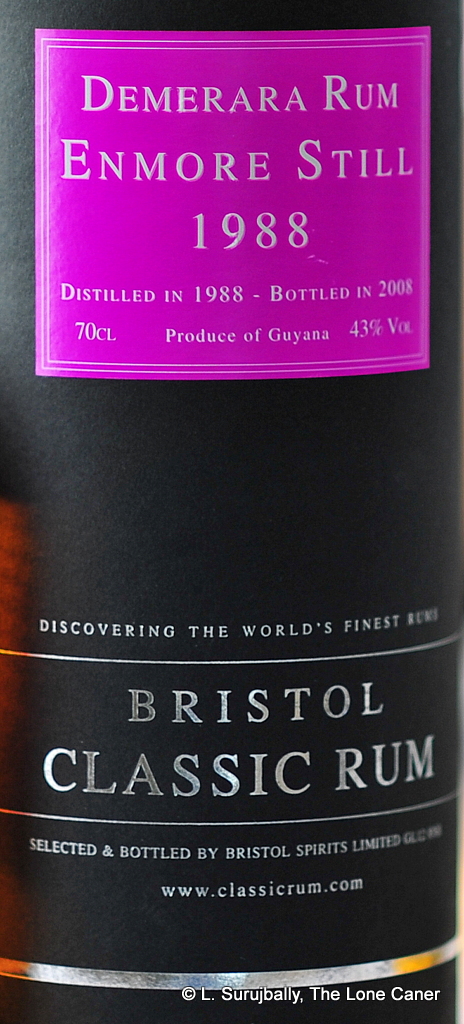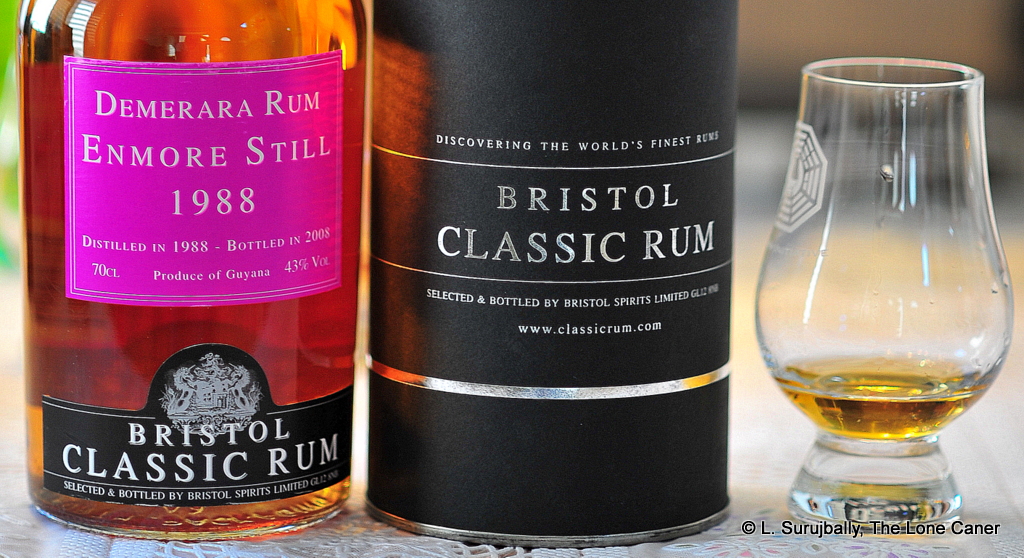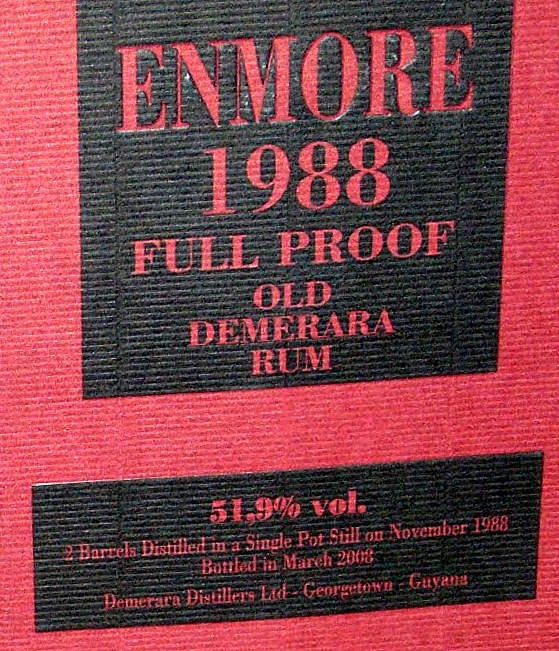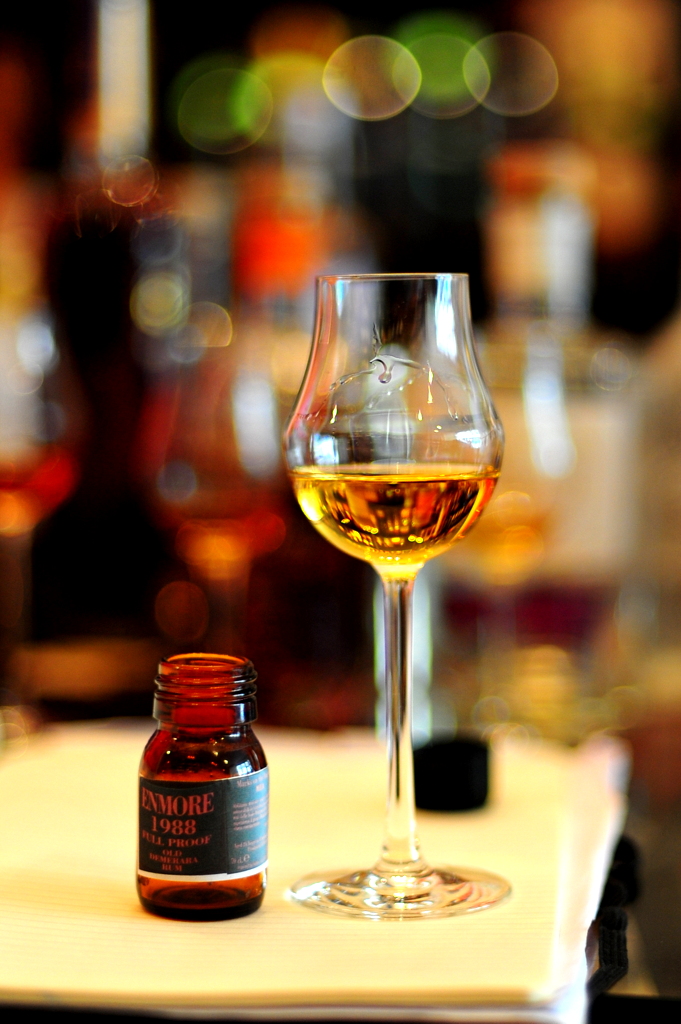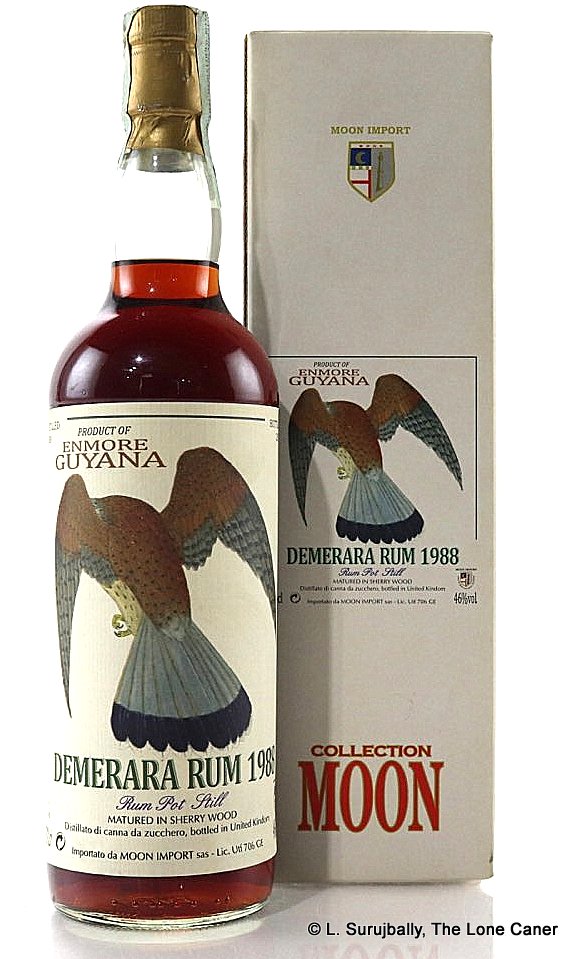 This is not the first Demerara rum that the venerable Italian indie bottler Moon Import has aged in sherry barrels: the superb 1974 30 Year Old, and several other over their limited rums releases, have also shared in this peculiarity. However, the results are somewhat hit or miss, because while the 30 YO scored a solid and deserved 90 points, this one doesn’t play in that league, however well-aged it may be. It’s entirely possible that this is because the rum is not an Enmore still rum at all, as the label implies, but from the Versailles single wooden pot still.
This is not the first Demerara rum that the venerable Italian indie bottler Moon Import has aged in sherry barrels: the superb 1974 30 Year Old, and several other over their limited rums releases, have also shared in this peculiarity. However, the results are somewhat hit or miss, because while the 30 YO scored a solid and deserved 90 points, this one doesn’t play in that league, however well-aged it may be. It’s entirely possible that this is because the rum is not an Enmore still rum at all, as the label implies, but from the Versailles single wooden pot still.
One wonders if the rum’s profile can settle this, since I’ve noted that labels from Moon Import tend to be rather careless in their wording (when a Port Mourant rum can be referred to as a “rum agricol” you know somebody is asleep at the wheel). Is this Versailles pot or Enmore coffey? Indifferent rum-geeks around the world want to know.
Let’s take a hard look at the dark gold-brown 46% ABV rum, then. The aromas are not helpful: there’s some dialled down licorice, aromatic tobacco, leather and smoke at the beginning, but none of the characteristic raw lumber, sawdust and pencil shavings of the Enmore still. The fruits are dark and piquant – prunes, blackberries, stewed plums, plus unsweetened chocolate, coffee grounds and salted caramel. It’s more raw and intense than the DDL’s own Enmore 1993 22 YO from the first release of the Rares, and I have to admit that Moon’s rum had more in common with DDL’s Versailles 2002 13 YO than the Enmore itself. In particular, the attendant notes of musty cardboard, fried bananas and overripe pineapple do not suggest the coffey still.
What about taste? Oddly, for a nose that bugled its own assertiveness, the palate is much less aggressive, and really lacks heft in the trousers. Still, there’s something there: the old worn leather of sweaty Clarke’s shoes, some more dark fruits (raisins, dates, prunes, all very ripe); briny tastes, caramel, unsweetened molasses, sweet soya sauce. Not much else, and that’s disappointing, really. Even continentally aged rums can have more complexity than this. And what of the sherry influence? Not a whole lot, sorry to report, marked mostly by its inconclusiveness, leading to a finish that is tolerably pleasant (it’s not sharp or bitchy), warm, fruity, bready (like a hot yeasty loaf fresh out of the oven) but really not that distinguishable.
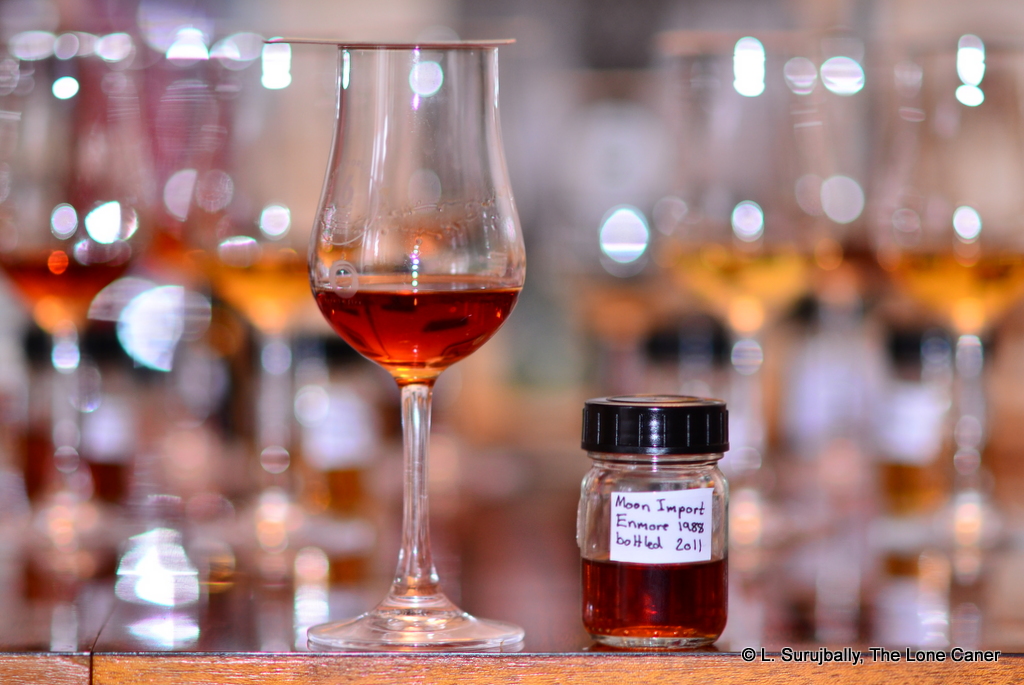
So on balance, I’d suggest Moon Imports really is a Versailles single wooden pot still rum – too many of the subtle Enmore notes are missing (I’ve argued before it’s a bit more elegant than the other two stills which tend to a more elemental brutalist profile). Is it worth the £150 it sold for on Rumauctioneer in September 2019? That’s harder, since everyone has favourites, not just among the stills, but the indies that release them and the years from which they hail. I’d suggest that for a rum from the 1980s, for its historical value (1980s single cask rums are getting rarer all the time), released by Moon Import which has a long history of careful selections, yes, it is. For the taste profile and its proof point, perhaps not so much.
(#817)(83/100)
Other Notes
- Serge Valentin has probably reviewed more 1988 Enmore rums than anyone else around (six, covering a period of many years) and nowhere does he mention any confusion between the two stills. Marius Elder of Single Cask Rum and Marco Freyr of Barrel Aged Mind probably did the best listings of them all, including (where known) whether they were Versailles or Enmore still rums, but neither has reviewed many yet (note that links provided here require searching for “1988”).
- Thanks to Nicolai Wachmann of Denmark for the sample
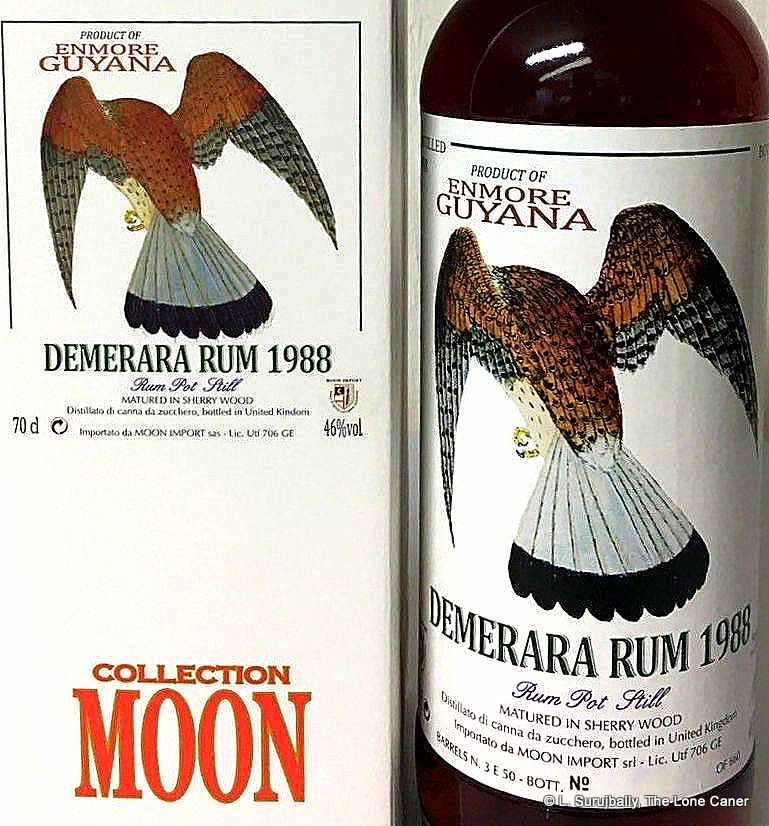 Opinion
Opinion
Moon Import’s website provides nothing on this rum, perhaps because a web presence wasn’t a big thing back in 2011, perhaps because good records weren’t being kept, or perhaps (worst of all) because accurately curating one’s back catalogue is not seen as anything important…a not-uncommon attitude among indies to this day, and one capable of driving me into transports of rage any time it is casually tossed out there for popular consumption. When will it ever become common for these old houses to properly research and list their older releases, and why is it considered of such low importance? FFS, people….
That kind of information is needed, because, again like the Moon’s PM 1974, the label is a problem. There was only a single 1988-2011 release made, and that’s this one with the bird on the label, noted as being an Enmore….and yet is also stated as being a pot still product. The RumAuctioneer item description from September 2019 says it’s a Versailles because “…the Enmore distillery closed in 1993, with its wooden coffey still and the Versailles still moved first to Uitvlugt and then to Diamond in 2000…” Which is true except that a label mentioning a rum as being both an Enmore and a pot still clearly does not have unambiguous lock on historical detail, not least because there was also a still called the Enmore still onsite at the same time. So which factoid are we to take as the right one?
Moon Import could rightfully say “both” – the Versailles still was at Enmore, so putting one name and one still type on the label is completely correct. Maybe I’m being overly critical. But consider that these details have a way of spreading to other informational sources that are also now being referred to as research tools. The new app Rum-X correctly notes this as being an Enmore (Versailles) distillery rum and a 660 bottle outturn….but then goes on to say it was distilled on a Double Wooden Pot still, which of course is neither of the other two, but the PM still, thereby exacerbating the confusion. An ebay listing in Italy didn’t mention the still of origin at all.
For the majority of rum drinkers, this is a complete non-issue. They’ll see the years, the age, the indie, and buy it (or not) if they can. For the discerning deep-diving rum fan who counts his money very carefully before dropping that kind of coin on an old rum, the lack of consistency, and confusion about the details, is a potential deal breaker. If you can’t nail the provenance down concretely, then it’s a dangerous buy, and that goes for a lot more than just this one rum.
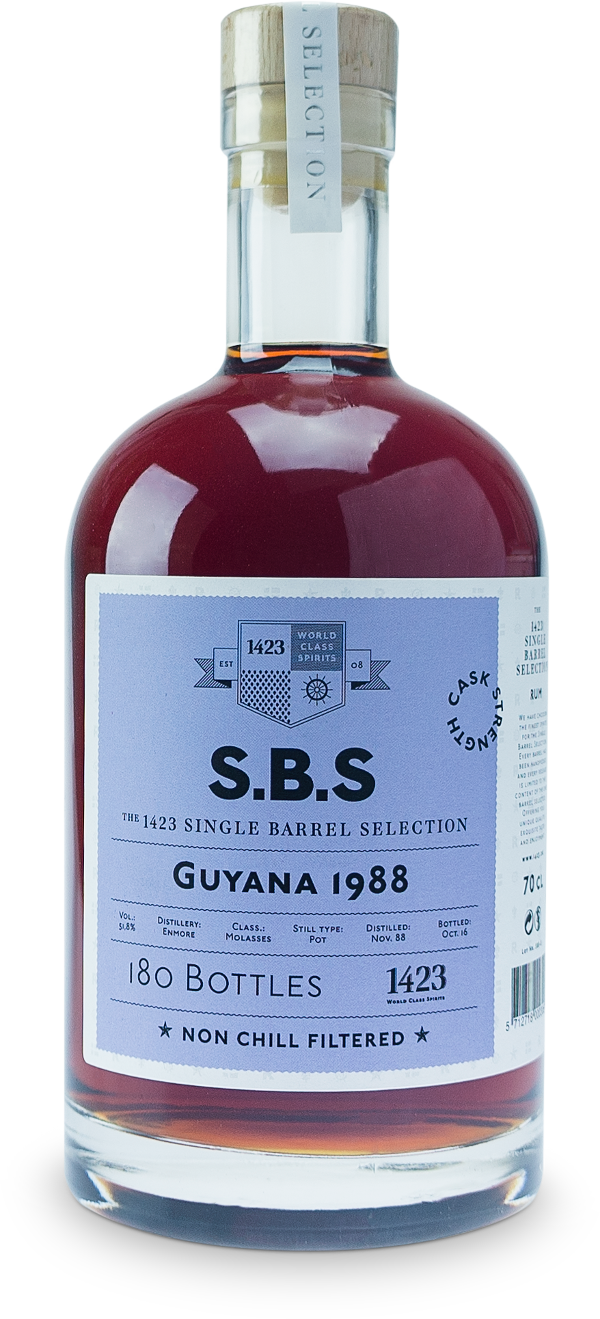
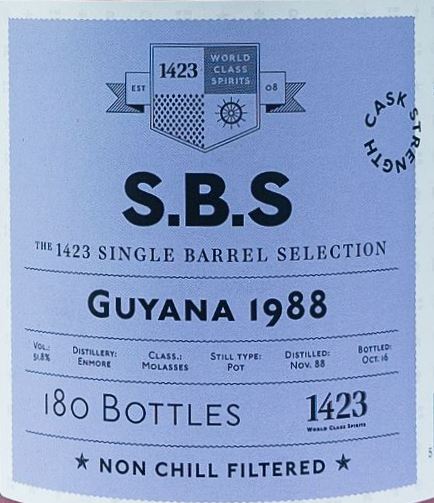 Now, there’s no doubt in my mind that this was as Guyanese as pepperpot and DDL – the real question is, which still made the rum? The label says it’s an Enmore from a pot still, all of SBS’s records (
Now, there’s no doubt in my mind that this was as Guyanese as pepperpot and DDL – the real question is, which still made the rum? The label says it’s an Enmore from a pot still, all of SBS’s records (